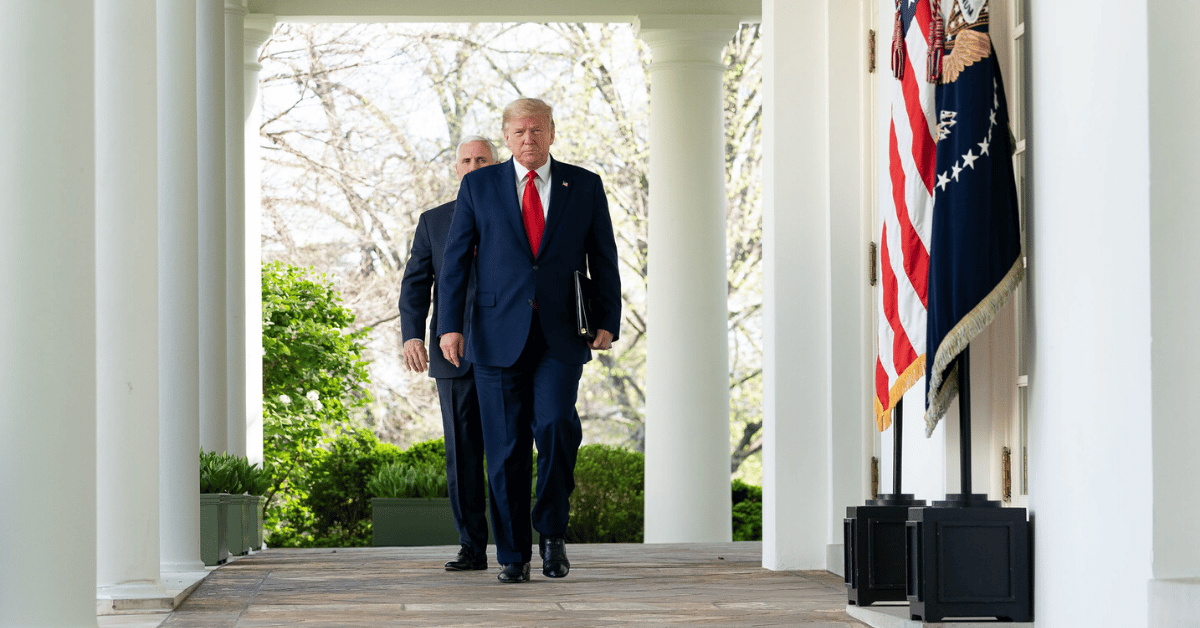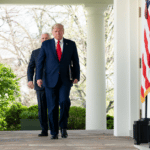


In a significant development for U.S. public diplomacy, a federal judge has mandated the reinstatement of Voice of America after its deconstruction by presidential decree.
Fox News reported that the decision contests President Donald Trump’s March executive order, reinstating the taxpayer-funded media services of Voice of America (VoA) and other entities.
Judge Royce Lamberth issued a ruling on Tuesday that challenged an executive order by President Trump, which had initially dissolved Voice of America along with the U.S. Agency for Global Media and Radio Free Europe/Radio Liberty.
The dissolution in March resulted in approximately 1,300 employees being placed on administrative leave and the discontinuation of contracts for 500 service providers.
The executive action that led to the dismantling cited accusations of biased reporting by the international broadcaster. With the agency's shutdown, the media sphere lost a crucial outlet regarded by some as a beacon of objective news for global audiences.
The Trump administration had defended its decision, suggesting that Voice of America had become misaligned with its foundational mission. A senior White House representative conveyed to Fox News Digital that the broadcaster was the "Voice for Radical America," highlighting concerns over divisive content propagated over the years.
The actions of the Trump administration prompted a lawsuit filed on March 22 by several plaintiffs. They targeted the administration as well as Kari Lake, who served as a special advisor to the U.S. Agency for Global Media.
The legal action sought to reverse the orders that had upended the status of Voice of America's workforce and to recover the agency's functioning abilities.
The plaintiffs urged the court to "cancel the orders" regarding the employees and to halt the dismantling process, restoring the operational aspects of the agency.
The lawsuit underscored the significance of VoA, stating that in "many parts of the world," its absence left a vacuum filled by "censored state-sponsored news media." This highlighted the broadcaster’s pivotal role in providing unbiased news, especially in regions where press freedoms are limited.
The executive mandate that sought to "eliminate" non-essential aspects of certain government entities significantly impacted operations and personnel linked to these media outlets. According to the order, the focus was to reduce "performance of their statutory functions and associated personnel to the minimum" required legally.
The restructuring raised alarms as critics speculated it was part of a broader move by the Trump administration to entirely shut down the agency.
The legal documents accused the administration of wielding "a chainsaw" against the agency, highlighting concerns over the potential total shutdown of its broadcasting capabilities.
While the judge has granted the Trump administration the option to appeal the ruling, there remains a concerted push from the plaintiffs to ensure the restoration of VoA employees and contractors. The organization's revival efforts reflect the legal and political complexities underlying media operations governed by public funds and policy decisions.
The court's decision underscores ongoing tensions between government oversight and the independence of publicly funded media outlets. Voice of America has historically been viewed as an essential tool for advancing U.S. public diplomacy, providing news coverage domestically and abroad.
With its reinstatement, VoA is poised to resume its role in offering diverse perspectives and unbiased reporting to international audiences, a mission that proponents argue serves American values and interests globally.
As VoA's workforce anticipates returning to their roles, the outcome of any appeals process by the Trump administration remains uncertain.
Conversely, the plaintiffs are determined to see a full reinstatement of the organization’s operations and personnel, advocating for the agency’s commitment to global journalism.
The federal ruling represents a judicial pushback against executive overreach, reaffirming the role of media outlets like VoA as central to both governance and international communication strategies. The resolution of this legal battle and its consequences will shape the future trajectory of U.S. international media.



